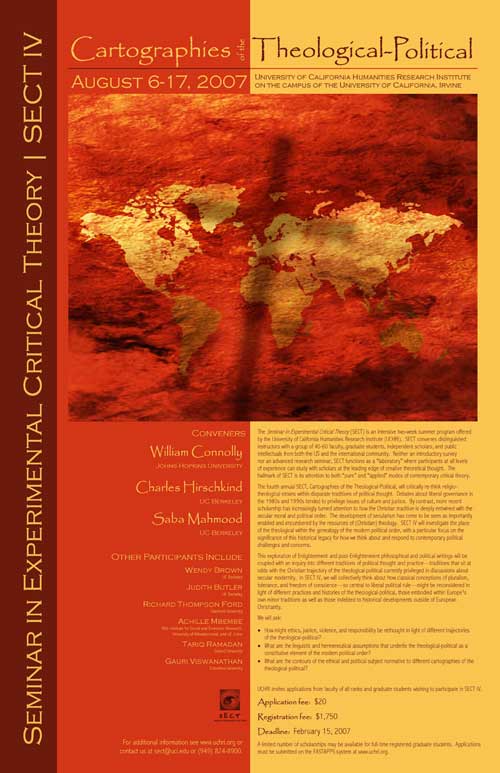SECT IV: "Cartographies of the Theological-Political"
August 6-17, 2007
The fourth annual SECT, "Cartographies of the Theological-Political," critically re-thought religio-theological strains within disparate traditions of political thought. Debates about liberal governance in the 1980s and 1990s tended to privilege issues of culture and justice. By contrast, more recent scholarship has increasingly turned attention to how the Christian tradition is deeply entwined with the secular moral and political order. The development of secularism has come to be seen as importantly enable and encumbered by the resources of (Christian) theology. SECT IV investigated the place of the theological within the genealogy of the modern political order, with a particular focus on the significance of this historical legacy for how we think about and respond to contemporary political challenges and concerns.
This exploration of Enlightenment and post-Enlightenment philosophical and political writings was coupled with an inquiry into different traditions of political thought and practice – traditions that sit at odds with the Christian trajectory of the theological-political currently privileged in discussions about secular modernity. In SECT IV, we collectively thought about how classical conceptions of pluralism, tolerance and freedom of conscience – so central to liberal political rule – might be reconsidered in light of different practices and histories of the theological-political, those embodied within Europe’s own minor traditions as well as those indebted to historical developments outside of European Christianity.
CONVENERS:
Charles Hirschkind, UC Berkeley
Saba Mahmood, UC Berkeley
PRESENTERS:
Wendy Brown, UC Berkeley
Judith Butler, UC Berkeley
Mohammad Fadel, University of Toronto
Richard Thompson Ford, Stanford University
Kirstie McClure, UC Los Angeles
Gauri Viswanathan, Columbia University
Michael Warner, Rutgers University
